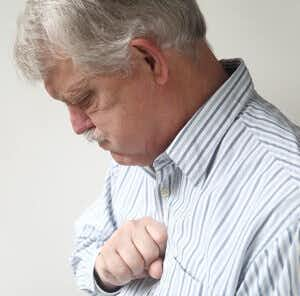
When proton pump inhibitor (PPI) drugs were first introduced decades ago, the perception was that these heartburn drugs had hardly any side effects. Both doctors and their patients were convinced that omeprazole (Prilosec), the first PPI, was both very powerful and extremely safe. This view has held up well enough for the FDA to approve non-prescription use of omeprazole (Prilosec OTC), lansoprazole (Prevacid24HR) and esomeprazole (Nexium 24HR). Are these powerful acid-suppressing drugs as safe as many people think?
PPIs Are Not Quite as Safe as They Seemed:
Gradually, however, data have accumulated showing that the PPI drugs are not really as safe as they originally seemed. First we learned that people taking a PPI are more susceptible to pneumonia (JAMA, May 27, 2009).
Then researchers found that people taking a PPI medication are much more likely to experience repeated infections with Clostridium difficile, or C. diff for short (JAMA Internal Medicine, May, 2015). This infection causes potentially devastating diarrhea that can in some cases be life threatening. It is extremely hard to treat, as the name “difficile” implies.
There are a number of other serious side effects of PPIs that have been surfacing. You can read more about hip fractures, chronic kidney disease, disrupted bacterial balance in the digestive tract, nutritional disturbances due to poor absorption of certain vitamins and minerals and, now, dementia associated with longer-term PPI use.
Rebound Heartburn Means Serious Withdrawal Troubles:
If you do want to quit taking your acid-suppressing drug, however, you may find it difficult. Many readers do. Here is one person who needs help.
Q. I read your article on PPI drugs causing kidney trouble. I have been on Prilosec for years, so this definitely caught my attention.
You have not given us a way to get off these drugs, though. I was diagnosed with GERD–just too much acid. I want to get off the Prilosec, but I need to know what replacement to try.
A. Researchers reported that proton pump inhibitors are linked to kidney disease (JAMA Internal Medicine, Feb., 2016). These powerful acid-suppressing drugs include dexlansoprazole (Dexilant), esomeprazole (Nexium), lansoprazole (Prevacid), omeprazole (Prilosec), rabeprazole (Aciphex) and pantoprazole (Protonix). Other complications of long-term use can include mineral deficiencies, an increased risk for fracture, C diff infections and pneumonia. In one case, a patient developed stomach polyps while taking omeprazole (Internal Medicine, online July 15, 2017).
Getting Off PPIs Without Withdrawal:
Getting off such medications can sometimes be difficult due to rebound hyperacidity. Although PPI drugs prevent cells in the stomach from making acid, they keep trying to make it. Gradually they gear up to make more, so by the time a person has been taking one of these medicines for two months, the cells pour out their acid as soon as the drug is stopped.
It can take six weeks or so for this over-reaction to calm down (Gastroenterology, July, 2009). No one should ever stop a PPI without careful medical consultation. Some serious medical conditions may require long-term treatment despite the risk of side effects.
A review of the medical literature (Therapie, Oct. 26, 2017) concluded:
“Daily PPI exposure for more than 4 weeks is likely to trigger a rebound of acid hypersecretion about 15 days after discontinuation, and lasting from a few days to several weeks depending on the duration of the exposure.”
There are some approaches that may be helpful for stopping a PPI without withdrawal symptoms. You will find a number of tips here.
Slowly Lower the Dose:
Lowering the dose gradually, if possible, might make the rebound acid secretion less noticeable. “Gradual” is a confusing term, though. For some people that might mean a week. For others it might mean several months. Neither the drug manufacturers nor the FDA provide clear guidance when it comes to stopping such medications. We suspect that they would prefer not to admit that there is such as thing as rebound hyperacidity.
We have learned over time that everyone is different when it comes to phasing off medicine. That goes for sleeping pills, anti-anxiety agents, antidepressants and drugs to treat pain.
If at any time you experience bad heartburn, go back on the last dose of PPI and then resume the taper even more gradually. You may need to look for esomeprazole, omeprazole or lansoprazole in a capsule formulation. Some people trying to get off the antidepressant duloxetine (Cymbalta) have told us that they remove one bead or granule each day. It can take months to gradually wean off this medication.
It may also be possible to control the symptoms during withdrawal by taking other medications, such as cimetidine (Tagamet), famotidine (Pepcid) or ranitidine (Zantac). Ordinary antacids such as Tums or Maalox may also be useful in this context for symptomatic relief. Another option is Prelief, a compound designed to reduce the effect of eating acidic foods.
Try DGL:
Those who prefer a more natural approach might consider DGL, deglycyrrhizinated licorice. Most of the research on this herb goes back decades, but it has been shown to be helpful for peptic ulcers and aphthous ulcers. Readers have also found it useful.
Sip Persimmon Tea:
In addition, persimmon tea with ginger has helped a number of readers in their efforts to quit a PPI without withdrawal. Presumably the ginger, which has a long history as a heartburn and anti-nausea treatment, is the primary active ingredient. The cinnamon and persimmon may also contribute to the effectiveness of this remedy.
A systematic review of medicinal plants used in traditional medicine for heartburn symptoms demonstrated that myrtle (Myrtus communis) and quince (Cydonia oblonga) preparations worked about as well as omeprazole (Journal of Alternative and Complementary Medicine, Feb. 2017). Unfortunately, the authors do not offer instructions on using these plants.
We are sending you our Guide to Digestive Disorders including tips on getting off PPIs. We trust you will find it helpful.
Revised 5/3/2018

